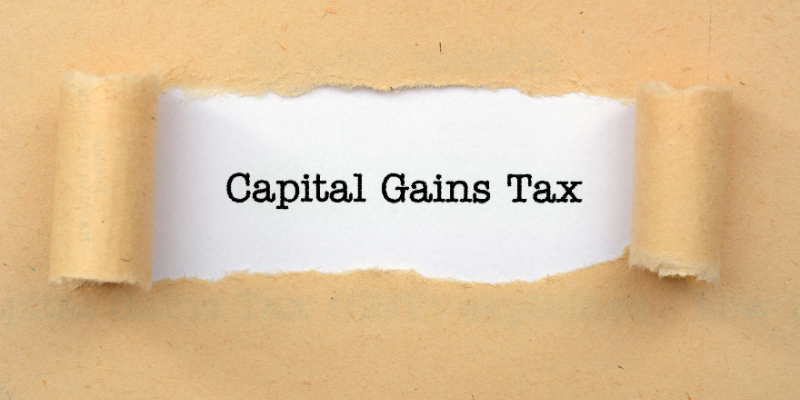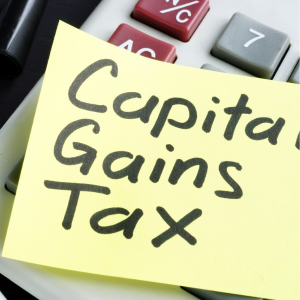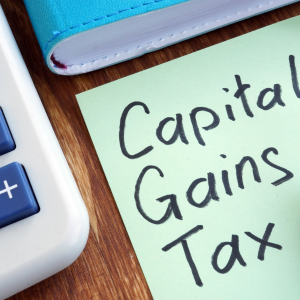
Understanding Capital Gains Tax on Real Estate Sales
Understanding capital gains tax is essential for effectively navigating the real estate market when selling your home in Richmond, VA. The profit realized from the sale of a property is subject to capital gains tax, which can considerably affect your financial results.
Capital gains are typically determined by deducting the property’s original purchase price and any related expenses from the sale price. Homeowners in Richmond might qualify for specific exemptions and exclusions that can decrease or eliminate their capital gains tax obligation.
The primary residence exclusion is particularly significant, permitting single homeowners to exclude up to $250,000 of profit. In contrast, married couples filing jointly can exclude up to $500,000, provided they have resided in the home for at least two out of the last five years before the sale. Maintaining comprehensive records of home improvements or qualifying expenses is essential, as these can enhance your cost basis and potentially reduce your taxable gain.
Staying current on federal and Virginia state tax laws is key to maximizing potential savings when selling a property in Richmond’s competitive housing market. Consulting with a knowledgeable real estate advisor or tax professional can help tailor strategies to your situation, ensuring smarter decisions around capital gains tax. For a faster, more efficient sale, consider working with cash home buyers in Richmond and other cities in Virginia who understand the local market and can simplify the process.
Long-term vs Short-term Capital Gains: What You Need to Know

Effective tax planning requires understanding the distinction between long-term and short-term capital gains when selling a home in Richmond, VA. Capital gains are the profits you earn when you sell an asset, such as real estate, and they are classified according to how long you’ve owned it.
If you’ve owned your home for more than a year before selling, it’s considered a long-term capital gain, which usually qualifies for lower tax rates than short-term gains. If you sell a property within a year of ownership, the profit is considered a short-term capital gain and taxed at your regular income tax rate.
This distinction can have a significant financial impact when selling real estate in Richmond. The IRS offers favorable tax treatment for long-term holdings to promote investment stability. Therefore, timing is important to consider when selling.
Understanding these differences enables homeowners to make informed decisions about their investments and tax liabilities in Virginia’s real estate market.
Calculating Capital Gains on Property in Richmond, VA
Understanding how to calculate capital gains tax on a property sale in Richmond, VA, is crucial for ensuring compliance and maximizing benefits. Capital gains are calculated by subtracting the adjusted cost basis from the net selling price.
The adjusted cost basis includes the original purchase price and significant improvements, like renovations or major repairs. When calculating your net sale proceeds, include any associated costs such as closing fees and real estate commissions.
In Richmond, home sellers may be eligible for certain exemptions, especially if the property was their primary residence for at least two of the previous five years. This can significantly lower or eliminate capital gains tax liability.
However, staying current on federal and Virginia state tax laws is critical, as they can affect your calculations and potential tax liabilities.
Impact of Home Improvements on Capital Gains Tax
To get the most money from selling your home in Richmond, VA, you must know how home improvements affect capital gains tax. The difference between the selling price and the original purchase price of your property, minus any improvements that qualify, determines the capital gains tax.
Homeowners can lower their taxable gain by including the cost of major repairs or upgrades they made while they owned the home. For example, you can add the costs of projects like putting on a new roof, updating kitchens or bathrooms, and installing energy-efficient windows to your home’s cost basis.
When you sell, this change can lower your capital gains tax. To back up these claims with the IRS, you must keep detailed records and receipts of all your work.
In Richmond’s competitive real estate market, savvy sellers can benefit from making strategic upgrades that boost property value and may also offer tax advantages. Partnering with a company that buys homes in Alexandria and surrounding Virginia cities can further streamline the process, helping you sell quickly while maximizing returns.
Exemptions and Reductions for Capital Gains Tax
When selling your Richmond, VA home, knowing about capital gains tax breaks and exemptions is important. If certain conditions are met, homeowners can claim the primary residence exclusion. This lets you exclude up to $250,000 of capital gains if you’re single or up to $500,000 if you’re married and filing jointly.
To qualify for this big exemption, you must have owned and lived there as your main home for at least two of the five years before the sale. Also, the times you rented out your property may affect whether or not you can use this exclusion.
It’s important to remember that any changes you make to your home can raise your cost basis, which could lower your taxable gains. In some cases, like divorce or moving more than 50 miles from your current home for work, you may get partial exclusions even if you don’t meet all of the residency requirements.
If you know these rules, it will be easier to figure out how selling a home in Richmond will affect your capital gains tax.
Navigating State vs Federal Capital Gains Taxes

When selling your home in Richmond, VA, it’s important to understand the distinction between state and federal capital gains taxes. Homeowners may qualify to exclude up to $250,000 (single filers) or $500,000 (married couples filing jointly) from capital gains if they’ve lived in the home for at least two of the past five years. To navigate this process easily, learn more about how our process works and how it can benefit your sale.
In contrast, Virginia has its own state capital gains tax, which can affect your total tax bill. Capital gains are considered regular income in Virginia, so they are taxed at the same rates as other types of income. Some states do not impose a capital gains tax.
To take advantage of any possible exclusions and reduce the taxable income from your home sale, you should carefully plan and consult with a tax professional familiar with federal and Virginia tax laws. It’s also important to understand how depreciation recapture and other factors affect your calculations so you can stay on top of your finances during this time.
How the Housing Market Affects Your Tax Obligations
The housing market in Richmond, VA, is a crucial factor in assessing your capital gains tax responsibilities upon selling your property. As property values change, the profit generated from the sale may influence your liability for capital gains tax.
In a thriving market characterized by increasing home prices, sellers may experience significant profits that could surpass the IRS exclusion limits for primary residences, which are currently established at $250,000 for single filers and $500,000 for married couples filing jointly. This situation could lead to a taxable gain on the surplus amount.
In contrast, in a downturn or stagnant market, reduced home appreciation may result in your sale not incurring any capital gains tax liability within these thresholds. Furthermore, gaining insight into local real estate trends can assist you in strategically timing your sale to optimize exclusions and reduce potential taxes.
Homeowners should consider the enhancements made to their property over time, as qualifying expenses can elevate the property’s adjusted basis and may reduce taxable gains. Being aware of the housing market conditions in Richmond is essential for effectively managing capital gains tax implications when selling your home.
Strategies to Minimize Capital Gains Tax Liability
When selling a home in Richmond, VA, homeowners can use various strategies to reduce their capital gains tax liabilities effectively. One common method is the IRS’s Section 121 exclusion, which allows individuals to deduct up to $250,000 of profit from the sale of their primary residence from capital gains tax, or up to $500,000 for married couples filing jointly.
To be eligible for this exclusion, the homeowner must have owned and lived in the property as their primary residence for at least two of the five years preceding the sale. Furthermore, homeowners should think about timing their sale strategically; ensuring they meet these residency requirements before selling can maximize their exclusion benefits.
Keeping meticulous records of home improvements and renovations is also essential because including documented expenditures on upgrades that increase the home’s worth can increase its cost basis. This higher cost basis may reduce the taxable gain when selling.
Consulting with a local tax advisor familiar with Virginia’s regulations can help identify opportunities to defer or mitigate taxes, such as a 1031 exchange (if applicable).
The Role of Depreciation in Real Estate Investments

It is imperative to comprehend depreciation in order to effectively navigate capital gains tax when selling a home in Richmond, VA. Property owners can deduct the real estate’s perceived decrease in value from their taxable income through depreciation. This deduction can substantially impact their tax obligations when they sell the property.
Depreciation deductions during ownership can reduce the annual taxable income of investors who rent out or use their properties for income. However, this benefit has implications when selling, as the IRS mandates that all previously claimed depreciation be “recaptured” and taxed at 25%.
This implies that the capital gains tax calculation at the time of sale must account for any gain from depreciation. It is essential to comprehend the impact of depreciation on the basis of your investment in order to accurately calculate potential tax liabilities and develop effective strategies to mitigate them.
Homeowners can optimize their financial outcomes during a property sale by collaborating with a tax advisor who is well-versed in Richmond’s real estate market and who can assist them in navigating these intricate regulations.
Selling Investment Properties: Tax Implications and Benefits
Understanding the tax implications of capital gains is critical when selling investment properties in Richmond, VA, to maximize your financial return. Capital gains tax is levied on the profit earned from the sale of an investment property, which can significantly impact your net income.
Like the rest of the United States, capital gains in Virginia are classified as short-term or long-term based on how long the property was held before being sold. Short-term capital gains, which apply if you owned the property for a year or less, are taxed at ordinary income rates.
Lower tax rates benefit long-term capital gains, so strategic timing is critical for optimizing your tax situation. Furthermore, certain strategies, such as using a 1031 exchange, can defer taxes by reinvesting the proceeds in a comparable property.
Understanding the tax advantages and potential implications helps investors make informed financial decisions when selling property in Richmond’s ever-changing market. Whether planning to sell soon or explore your options, The Cash Offer Company in Richmond can help guide you through the process with expert insight and support.
Do I Have to Pay Capital Gains Tax When I Sell My House in Virginia?
It’s important to know about capital gains tax when you sell your home in Richmond, VA. In Virginia, whether you have to pay capital gains tax when you sell your house depends on several things.
If you own a home that is your main residence, you may be able to avoid paying capital gains tax. If you’ve lived in your Richmond home as your main home for at least two of the five years before the sale, you might get a tax break of up to $250,000 if you’re single or $500,000 if you’re married and filing jointly.
This means that many people in Richmond who sell their homes might not have to pay any capital gains tax. However, it’s important to consider improvements made to the property and other costs that could affect your adjusted cost basis and possible taxable gain.
Talking to a tax expert who knows the Virginia real estate market can help you understand how these rules apply to your situation in Richmond.
How to Avoid Virginia Capital Gains Tax?
When selling your Richmond, VA home, consider the IRS Primary Residence Exclusion to avoid or reduce Virginia capital gains tax. Individuals can exclude up to $250,000 in capital gains ($500,000 for married couples) if they lived in the home as their primary residence for at least two of the last five years before the sale.
Furthermore, strategically timing the sale can help you maximize this benefit. It’s also critical to keep detailed records of any home improvements made during your ownership, as these expenses can be added to your home’s basis and deducted from taxable gains.
Another strategic step toward effectively navigating potential liabilities is consulting with a local tax advisor who understands federal and Virginia state tax laws. Richmond homeowners can significantly reduce or even eliminate their capital gains tax liability when selling their property by implementing these strategies and aligning them with current Virginia tax regulations.
How Do You Calculate Capital Gains on the Sale of a House?
To get the best tax results when you sell a house in Richmond, VA, you need to know how to determine your capital gains. To determine capital gains, you take the selling price and subtract the property’s adjusted cost basis.
The adjusted cost basis is the original purchase price plus the costs of major improvements and some fees. If you live in Richmond and know about the local housing market, it can affect the price you get for your home and, in turn, your capital gains tax bill.
You might get a capital gains exclusion of up to $250,000 for single filers or $500,000 for married couples filing jointly if you’ve lived in your home for at least two of the last five years before selling it. This exclusion can greatly lower your tax bill or even eliminate it completely.
When selling your Richmond home, it’s important to keep detailed records of all transactions related to your property and talk to a tax advisor who knows Virginia laws to make sure you’re following the rules and getting the most savings possible.
Helpful Richmond Blog Articles
- Handling Tenant Property Damage In Richmond, VA
- Filing A Quitclaim Deed For Real Estate In Richmond, VA
- Is Richmond a Good Place to Call Home?
- Who Pays Hoa Fees At Closing In Richmond, VA
- Selling An Inherited House In Richmond, Virginia
- Sell Your Fixer-upper in Richmond, VA
- Key Documents Needed For A Smooth Home Sale In Richmond, VA
- Attorney Fees for House Closing in Richmond, Virginia
- Can I Switch Real Estate Agents in Richmond, Virginia
- Navigating Capital Gains Tax When Selling Your Home In Richmond, VA
- Timeline For Selling A Home In Richmond, VA’s Real Estate Market
- Selling Your Repair-needed Home In Richmond, VA

| LEVIED | TAXATION | UNREALIZED GAINS | THE COMMONWEALTH OF VIRGINIA | PROPERTY TAXES | CAPITAL GAINS TAXED |
| DEDUCTIBLE EXPENSES | INCOME TAXED | INCOME TAXES | TAX-PLANNING | SALES AND USE TAX | SALES TAX |
| AVERAGE | VEHICLE | TAX RETURN | THE INTERNAL REVENUE SERVICE (IRS) | GAS | TRANSFER TAX |
| REALTORS | REAL ESTATE AGENT | BUYER | ESTATE TAXES | ESTATE TAX | FEDERAL ESTATE TAX |
| DEPARTMENT | CREDIT | TAX-FREE | TAX BRACKETS | TAX FOUNDATION | PROGRESSIVE TAX |
| PROGRESSIVE TAX SYSTEM | MONEY | CASH | RETIREMENT | INTERESTS | INFORMATION |
| FISCAL YEAR | TAX YEAR | ESTATE AGENT | PROPERTY DEED | DEED | TAX CREDIT |
| TAX BREAKS | STATE INCOME TAX | FEDERAL INCOME TAX | FEDERAL INCOME TAX PURPOSES | YOUR TAXABLE INCOME |
![Trustworthy Cash Home Buyer [market_city]](https://image-cdn.carrot.com/uploads/sites/27469/2024/08/Trustworthy-Cash-Home-Buyer-1920x800.png)
